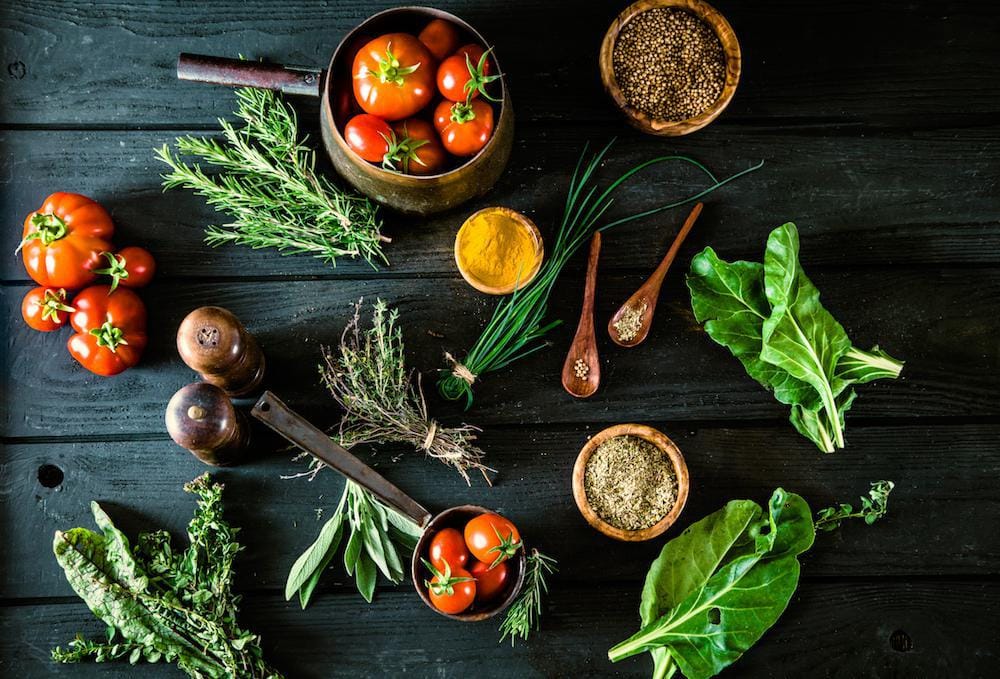
| Managing venous insufficiency involves more than just medical treatment; diet plays a crucial role in supporting vein health and improving circulation. By incorporating anti-inflammatory foods, staying hydrated, and reducing sodium intake, you can help alleviate symptoms and enhance overall vascular function. At Advanced Vein & Laser Center in York and Lancaster, Pennsylvania, we offer expert guidance on dietary changes to complement your treatment plan. Schedule an appointment today to take the next step towards healthier veins and improved well-being. |
Venous insufficiency is a condition where the veins in your legs struggle to send blood back to your heart, leading to blood pooling and related symptoms such as swelling, pain, and varicose veins.
While medical treatments at Advanced Vein & Laser Center can effectively address venous insufficiency, diet plays a crucial role in supporting vein health and improving your overall vascular system.
Whether you are in York or Lancaster, Pennsylvania, our experts can guide you on how dietary changes can enhance your treatment outcomes.
What is Venous Insufficiency?
Venous insufficiency occurs when the valves in your veins weaken or become damaged, making it difficult for blood to flow efficiently back to your heart. Understanding the factors that contribute to venous insufficiency is the first step toward managing it effectively.
Below are the key causes associated with venous insufficiency:
- Weak or damaged vein valves
- Prolonged standing or sitting
- Excess weight or obesity
- Family history of venous insufficiency or vein problems
- Previous cases of deep vein thrombosis (DVT)
Some symptoms of Venous Insufficiency to look out for are:
- Swelling in the legs or ankles
- Pain or discomfort in the legs, particularly after long periods of standing or sitting
- Varicose veins
- A feeling of heaviness or fatigue in the legs
- Skin discoloration or ulcers near the ankles
At Advanced Vein & Laser Center, with locations in York and Lancaster, Pennsylvania, we emphasize the importance of a comprehensive approach that includes dietary management and lifestyle changes to help manage venous insufficiency effectively.
The Role of Diet in Managing Venous Insufficiency
Diet plays a critical role in managing venous insufficiency by supporting vein health and improving circulation. What you eat can have a direct impact on the condition of your veins, influencing factors such as inflammation, blood pressure, and overall vascular function.
A well-balanced diet rich in specific nutrients can help strengthen blood vessels, reduce symptoms, and even slow the progression of venous insufficiency. By incorporating key dietary changes, patients can significantly enhance the effectiveness of their treatment plan and maintain better vein health over the long term.
At Advanced Vein & Laser Center in York and Lancaster, Pennsylvania, our experts provide personalized dietary advice to complement your vein care regimen, ensuring a comprehensive approach to managing venous insufficiency.
A. Anti-inflammatory Foods
Inflammation is a significant contributor to vein damage in venous insufficiency. Consuming anti-inflammatory foods can help reduce inflammation and support vein health. Foods rich in antioxidants, such as leafy greens, berries, nuts, and fatty fish like salmon, can reduce inflammation and improve circulation. Incorporating these foods into your diet is a key strategy in managing venous insufficiency, whether you visit our York or Lancaster, Pennsylvania locations.
B. Fiber-Rich Foods
Fiber is essential for maintaining a healthy digestive system and preventing constipation, which can exacerbate venous insufficiency by putting additional pressure on your veins. A diet rich in whole grains, fruits, vegetables, and legumes helps manage weight and reduces strain on your veins, supporting overall vein health. The team at Advanced Vein & Laser Center in York and Lancaster, Pennsylvania, can provide personalized advice on incorporating fiber-rich foods to combat venous insufficiency.
C. Hydration
Staying hydrated is crucial for maintaining proper blood flow, which is essential in managing venous insufficiency. Dehydration can thicken your blood, making it harder for it to move through your veins and increasing the risk of clotting. Drinking plenty of water throughout the day keeps your blood at an optimal viscosity, promoting better circulation and reducing the risk of complications from venous insufficiency. Our specialists in York and Lancaster, Pennsylvania, recommend specific hydration strategies to support your vein health.
D. Foods Rich in Flavonoids
Flavonoids are natural compounds found in various fruits and vegetables that have been shown to strengthen blood vessels and improve circulation—key factors in managing venous insufficiency. Consuming foods rich in flavonoids, such as citrus fruits, onions, garlic, and dark chocolate, can help reduce the symptoms of venous insufficiency. These foods improve the elasticity of your veins and reduce the likelihood of blood pooling. Advanced Vein & Laser Center in York and Lancaster, Pennsylvania, can help you identify the best sources of flavonoids for your diet.
E. Low-Sodium Diet
High sodium intake can lead to fluid retention, which exacerbates swelling and discomfort in individuals with venous insufficiency. Reducing your sodium intake by avoiding processed foods and opting for low-sodium alternatives can help decrease swelling and improve your overall vein health. The experts at Advanced Vein & Laser Center in York and Lancaster, Pennsylvania, can provide tips and recommendations on how to enjoy a flavorful, low-sodium diet to manage venous insufficiency effectively.
Lifestyle Tips to Complement Your Diet
- Exercise
Regular physical activity is essential for improving circulation and strengthening the muscles that support your veins, which is vital in managing venous insufficiency. Simple exercises like walking, swimming, and cycling can help maintain healthy blood flow and reduce the pressure on your veins. Whether you’re near our York or Lancaster, Pennsylvania offices, we can recommend exercise routines tailored to support your vein health.
- Weight Management
Maintaining a healthy weight is crucial for minimizing the strain on your veins, which is particularly important in managing venous insufficiency. Excess weight increases the pressure on your lower body veins, making it harder for them to function correctly. By following a balanced diet and engaging in regular exercise, you can manage your weight effectively and reduce your risk of complications from venous insufficiency. Our team in York and Lancaster, Pennsylvania, is here to support you in achieving your weight management goals.
- Leg Elevation
Elevating your legs above heart level for 15-20 minutes several times a day can help reduce swelling and improve blood flow, a simple yet effective method in managing venous insufficiency. This practice can alleviate symptoms and complement the other treatments you receive at Advanced Vein & Laser Center in York and Lancaster, Pennsylvania.
Aftercare Tips for Managing Venous Insufficiency
Managing venous insufficiency is an ongoing process that requires consistent effort. It’s important to treat any other conditions that arise as a result of venous insufficiency, but more important are the ongoing lifestyle adjustments you make
Here are some aftercare tips to help you maintain progress:
- Monitor Your Diet: Continue to incorporate anti-inflammatory, fiber-rich, and flavonoid-rich foods into your daily meals. Staying hydrated and reducing sodium intake are also key to maintaining vein health.
- Regular Check-Ups: Schedule regular visits with your vein specialist at Advanced Vein & Laser Center in York or Lancaster, Pennsylvania, to monitor your condition and make necessary adjustments to your treatment plan.
- Daily Routine: Incorporate healthy eating and regular exercise into your daily routine. Small, consistent changes can lead to significant improvements in your overall vascular health.
Expertise in Managing Venous Insufficiency at Advanced Vein & Laser Center
At Advanced Vein & Laser Center, with locations in York and Lancaster, Pennsylvania, we specialize in comprehensive care for venous insufficiency. Our team of experienced vein specialists is dedicated to providing personalized treatment plans that include dietary guidance and lifestyle recommendations to manage venous insufficiency effectively.
We understand that every patient’s needs are unique, and our approach is tailored to ensure the best possible outcomes. By combining medical treatments with dietary and lifestyle strategies, we help our patients achieve improved vascular health and a better quality of life.
Take control of your vein health today—schedule a consultation with Advanced Vein & Laser Center and start your journey towards healthier veins.
Frequently Asked Questions (FAQ)
1. Can diet alone cure venous insufficiency?
Diet alone cannot cure venous insufficiency, but it can significantly support vein health and reduce symptoms when combined with medical treatments available at Advanced Vein & Laser Center in York and Lancaster, Pennsylvania. A balanced diet can help manage weight, improve circulation, and reduce inflammation, all of which are crucial for managing venous insufficiency.
2. What foods should I avoid with venous insufficiency?
It’s best to avoid foods high in sodium, unhealthy fats, and refined sugars, as these can contribute to inflammation, weight gain, and poor circulation. Processed foods, fast foods, and sugary snacks should be limited to manage venous insufficiency effectively.
3. How soon can I see improvements in my venous health from dietary changes?
Improvements can vary depending on the individual and the severity of their condition. Generally, you may start noticing positive changes in your symptoms within a few weeks of adopting a healthier diet. However, for lasting results, it’s important to maintain these dietary changes over the long term. The team at Advanced Vein & Laser Center in York and Lancaster, Pennsylvania, will work with you to monitor your progress.


